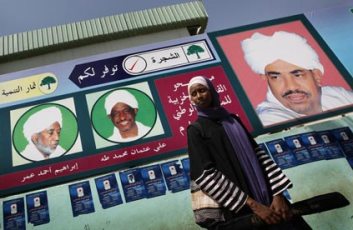NCP unhappy with “timing” of electricity rates hikes, asks Bashir to reconsider
July 27, 2012 (KHARTOUM) – The ruling National Congress Party (NCP) in Sudan has expressed dissatisfaction with the timing and target of the decision to increase electricity charges, asking President Omer Al-Bashir to reconsider it.

Speaking to reporters on Thursday, the speaker of the National Assembly and leading NCP member, Ahmad Ibrahim Al-Tahir, said that the increases were “inopportune” and stoked discontent.
The decision comes against the backdrop of an already deteriorating economic situation which saw the outbreak of small but growing protests over the last month.
Al-Tahir said that the decision has burdened citizens beyond their power of endurance, stressing the need to consider the gradual timing of ending state subsidies.
He went on to reveal that the NCP’s leadership bureau has intervened in the matter by asking its chairman and president of the republic, Omer al-Bashir, to reconsider the decision “vis a vis the timing and the affected segments”.
Sudan’s current economic crisis stems from the secession, on 9 July 2011, of South Sudan which used to produce three-quarters of the country’s oil wealth – the main source of state revenues.
In response to the crisis, which manifests itself in soaring inflation and a depreciating currency, the government introduced an austerity program that partially ended fuel subsidies to make up for a budget deficit of US$2.4 billion.
(ST)
